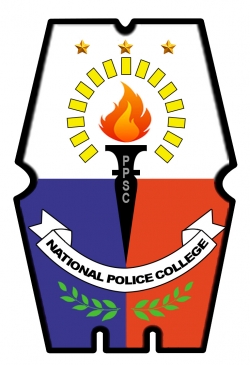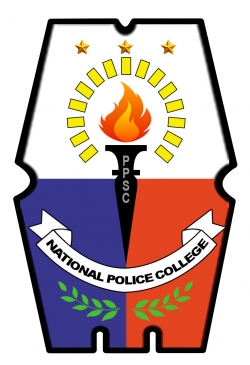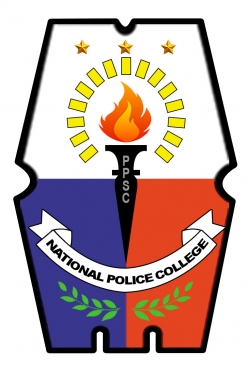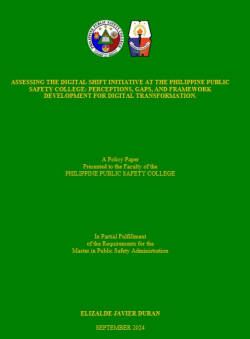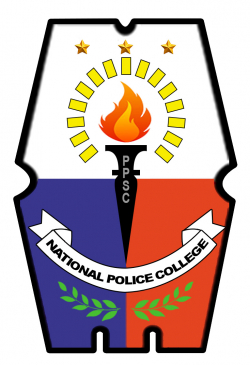PUBLIC SAFETY AND SECURITY STUDIES OF VALENZUELA CITY
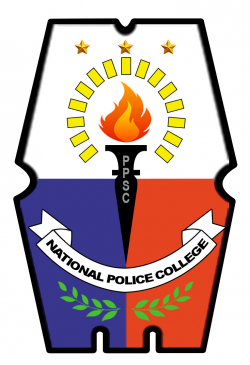
Type
Thesis
Authors
PCPT BENJIE C BUTAC ( PCPT JOAN H DE LEON PCPT BENJIE DC DE VERA )
Category
PSOAC
[ Browse Items ]
Publication Year
2024
Abstract
EXECUTIVE SUMMARY
This study provides valuable insights into the public safety and security aspects of Valenzuela City. Reintegrating former insurgents tagged as “Balik-Loob” individuals returning into civilian life is a critical issue in the Philippines, particularly in areas like Valenzuela City. Successful reintegration is essential for maintaining local and national security, fostering community stability, and reducing the risk of recidivism. The government, in collaboration with various stakeholders, has implemented numerous programs aimed at supporting these individuals. However, the effectiveness of these programs and the challenges they face require thorough evaluation to ensure success and sustainability.
The primary purpose of this study is to assess the effectiveness of the current reintegration programs for “Balik-Loob’ individuals in Valenzuela City. By examining these programs through the BEST LEAPS framework, the research aims to identify strengths, weaknesses, and areas for improvement. This comprehensive analysis will provide actionable insights and recommendations to enhance the reintegration process, ultimately contributing to improved public safety and security.
Significance of the Study
The findings from this study are significant for several reasons:
1. Policy Development: The insights gained can inform policymakers on the necessary adjustments and enhancements required in reintegration to address existing gaps and challenges.
2. Program Improvement: By identifying most and least effective aspects of current programs, concerned agencies can allocate resources more efficiently and design targeted interventions to enhance returnees’ support.
3. Community Impact: Understanding community acceptance and integration challenges helps in fostering a more inclusive and supportive environment for returnees, reducing social stigmatization and promoting long-term stability.
4. National Security: Successful reintegration reduces the risk of recidivism, thereby enhancing overall national security and contributing to lasting peace and order.
Methodology
The study employs a mixed-methods approach, combining quantitative surveys and qualitative interviews with 39 returnees and key informants. Data collection included structured questionnaires and in-depth interviews, analyzed using statistical software and thematic analysis.
Key Findings
• Community Acceptance: A high level of acceptance was reported by the respondents feeling welcomed and accepted by their communities.
• Program Effectiveness: There is varied effectiveness in the programs offered. Livelihood programs are highly rated, while housing support requires improvement.
• Recidivism Risk: Out of 39, six (6) respondents indicated willingness to return to their former insurgent groups, highlighting the need for stronger support mechanisms.
• Highly Suggested and Valued Programs: Healthcare programs and employment opportunities are significantly valued, with most respondents suggested for the consistent implementation and sustainability of the program, while the need for educational assistance (5 respondents) was also highlighted.
• Community Engagement: Communities that actively participate in engagement activities shows a higher level of trust and support for reintegration efforts. Additionally, information dissemination and awareness campaigns have been instrumental in reducing stigma and fostering a supportive environment for the returnees.
• Public Safety Impact: The presence of reintegrated individuals has not significantly increased crime rates. It highlights the need for ongoing support and monitoring.
Challenges
• Potential Recidivism: The willingness of some respondents to return to insurgent activities poses a significant risk.
• Resource Allocation: Logistical challenges and funding shortfalls impact program sustainability.
• Community Perception and Acceptance: Despite high acceptance rate, some returnees still face stigmatization, necessitating ongoing community engagement and education.
• Program Effectiveness and Sustainability: The need for effective and sustainable programs are crucial for the successful reintegration of the returnees into the community such as Developing a supportive legal framework, enhancing partnership, coordination, and collaboration between various government agencies and partner stakeholders, channeling of efforts and proper documentation, building a strong political will and policy enforcement, securing funding, conducting regular training for personnel and capacity building (for strong professional support), information dissemination and community engagement, close monitoring and continues feedback gathering.
• Returnees’ Involvement: the active participation of returnees, compliance with necessary requirements for social services, and understanding limitations of provided services, are some of the challenges that hinder the returnees in enjoying the social services being delivered by the government agencies and other partner stakeholders.
B.E.S.T.L.E.A.P.S Analysis
This analysis ensures a comprehensive evaluation of various factors influencing the reintegration process. This approach allows for a detailed understanding for the successes and limitations of current programs, providing a basis for recommendation.
• Basic Key Leaders: Community leaders play a vital role in enhancing program effectiveness, fostering community acceptance and promoting trust and cooperation between returnees and the community. Change in leadership is crucial for program continuity. Mistrust in current leadership and unsupportive leaders may hinder the success of the reintegration program while change in leadership may not ensure program continuity.
• Environmental Factors: Creating safe and supportive environments is crucial for the successful reintegration of returnees. Lack of sustainability of programs and practices related to greening practices, increased pollution and associated health risks, resource scarcity and environmental vulnerability are the issues that need to be addressed.
• Socio-Cultural Factors: Socio-cultural organizations have played a vital role on providing health services, livelihood programs, and other support essential for the returnees’ transition. Their efforts have addressed the cultural and social needs of the individuals aiding in their reintegration
• Transportation System: inadequate transportation infrastructure hinders accessibility to programs, affecting active participation of the returnees. Another factor is the accessibility in non-main thoroughfares especially in densely populated areas within the city. It hinders accessible transportation for returnees and conduct of information dissemination and community engagement.
• Legal, Law and Order: Access to legal assistance can help returnees navigate the legal system, or deal with any legal issues that may arise. Policies that promote fair treatment and non-discrimination towards returnees, and initiatives that focus on preventing reoffending are vital to the reintegration process.
• Economics: Employment opportunities and access to stable and well-paying jobs can significantly enhance the reintegration process. Returnees need financial stability to support themselves and their families. Government initiatives such as financial assistance, vocational training and entrepreneurship programs can help returnees establish their livelihoods.
• AFP, PNP, LEAs and Other Allied Agencies: Effective collaboration with Armed Forces of the Philippines, Philippine National Police, other law enforcement and allied agencies ensures security, addresses potential threats and ensures delivery of social services.
• Political Factors: Strong political will, policy enforcement, and support are necessary for securing funding and implementing policies for successful reintegration programs for the returnees.
• Scientific and Technological Factors: Utilizing modern technologies for information dissemination, monitoring and evaluation enhances facilitation, program management and accountability. Creation of group chats for easy access of communication.
Conclusion
The study on “Balik-Loob” individuals in Valenzuela City reveals both the strengths and limitations of current reintegration programs. While the efforts by various agencies are commendable, challenges remain that hinder the successful and lasting reintegration of “Balik-Loob” individuals into mainstream society.
The rationale behind this study is to contribute to the ongoing efforts to improve the reintegration of “Balik-Loob” individuals. By providing a detailed assessment and actionable recommendations, the research aims to support the development of more effective programs that not only assist returnees in their transition to civilian life but also enhance public safety and community cohesion. The findings contribute to the broader discourse on reintegration and public safety, providing a roadmap for policymakers and practitioners in similar contexts.
Recommendations
Included in the multi-agency recommendations are establishing a comprehensive legal framework that support the rights of the returnees ensure sustainable reintegration program, enhance policies and guidelines and established roles and responsibilities of each agencies, implement a systematic documentation process and channeling of efforts to track and manage efforts, enhanced coordination and collaboration between government agencies and partner stakeholders, Allocation of sustainable funding, provide ongoing training and capacity-building programs, focus on the information dissemination strategy to ensure returnees are aware of available programs and services, promote community engagement and awareness initiatives to foster a supportive environment for returnees. Increase transparency in program implementation to build trust and ensure accountability among the multi-agency and implement close monitoring and regular feedback gathering to assess community perception and program effectiveness.
To further improve the effectiveness of reintegration efforts, fostering long-term stability and reducing the risk of recidivism, these recommendations highlight the participation from the returnees to achieve positive results such as active participation in government programs, complying necessary requirements for social services, and understanding the limitations of services provided. These recommendations facilitate the successful and sustainable reintegration of the returnees into the community.
Action Plan
The action plan spans from the 3rd quarter of 2024 to ongoing initiatives into 2025 and beyond. It includes reviewing legal policies, enhancing documentation, and setting up inter-agency coordination and collaboration. Securing funding, improving training and capacity building, and community initiatives are prioritized, information dissemination and community engagement will also be developed. Each step involves designated personnel and agencies, with attention to resource allocation and risk management, close monitoring and feedback gathering to ensure program execution and sustainability.
This study provides valuable insights into the public safety and security aspects of Valenzuela City. Reintegrating former insurgents tagged as “Balik-Loob” individuals returning into civilian life is a critical issue in the Philippines, particularly in areas like Valenzuela City. Successful reintegration is essential for maintaining local and national security, fostering community stability, and reducing the risk of recidivism. The government, in collaboration with various stakeholders, has implemented numerous programs aimed at supporting these individuals. However, the effectiveness of these programs and the challenges they face require thorough evaluation to ensure success and sustainability.
The primary purpose of this study is to assess the effectiveness of the current reintegration programs for “Balik-Loob’ individuals in Valenzuela City. By examining these programs through the BEST LEAPS framework, the research aims to identify strengths, weaknesses, and areas for improvement. This comprehensive analysis will provide actionable insights and recommendations to enhance the reintegration process, ultimately contributing to improved public safety and security.
Significance of the Study
The findings from this study are significant for several reasons:
1. Policy Development: The insights gained can inform policymakers on the necessary adjustments and enhancements required in reintegration to address existing gaps and challenges.
2. Program Improvement: By identifying most and least effective aspects of current programs, concerned agencies can allocate resources more efficiently and design targeted interventions to enhance returnees’ support.
3. Community Impact: Understanding community acceptance and integration challenges helps in fostering a more inclusive and supportive environment for returnees, reducing social stigmatization and promoting long-term stability.
4. National Security: Successful reintegration reduces the risk of recidivism, thereby enhancing overall national security and contributing to lasting peace and order.
Methodology
The study employs a mixed-methods approach, combining quantitative surveys and qualitative interviews with 39 returnees and key informants. Data collection included structured questionnaires and in-depth interviews, analyzed using statistical software and thematic analysis.
Key Findings
• Community Acceptance: A high level of acceptance was reported by the respondents feeling welcomed and accepted by their communities.
• Program Effectiveness: There is varied effectiveness in the programs offered. Livelihood programs are highly rated, while housing support requires improvement.
• Recidivism Risk: Out of 39, six (6) respondents indicated willingness to return to their former insurgent groups, highlighting the need for stronger support mechanisms.
• Highly Suggested and Valued Programs: Healthcare programs and employment opportunities are significantly valued, with most respondents suggested for the consistent implementation and sustainability of the program, while the need for educational assistance (5 respondents) was also highlighted.
• Community Engagement: Communities that actively participate in engagement activities shows a higher level of trust and support for reintegration efforts. Additionally, information dissemination and awareness campaigns have been instrumental in reducing stigma and fostering a supportive environment for the returnees.
• Public Safety Impact: The presence of reintegrated individuals has not significantly increased crime rates. It highlights the need for ongoing support and monitoring.
Challenges
• Potential Recidivism: The willingness of some respondents to return to insurgent activities poses a significant risk.
• Resource Allocation: Logistical challenges and funding shortfalls impact program sustainability.
• Community Perception and Acceptance: Despite high acceptance rate, some returnees still face stigmatization, necessitating ongoing community engagement and education.
• Program Effectiveness and Sustainability: The need for effective and sustainable programs are crucial for the successful reintegration of the returnees into the community such as Developing a supportive legal framework, enhancing partnership, coordination, and collaboration between various government agencies and partner stakeholders, channeling of efforts and proper documentation, building a strong political will and policy enforcement, securing funding, conducting regular training for personnel and capacity building (for strong professional support), information dissemination and community engagement, close monitoring and continues feedback gathering.
• Returnees’ Involvement: the active participation of returnees, compliance with necessary requirements for social services, and understanding limitations of provided services, are some of the challenges that hinder the returnees in enjoying the social services being delivered by the government agencies and other partner stakeholders.
B.E.S.T.L.E.A.P.S Analysis
This analysis ensures a comprehensive evaluation of various factors influencing the reintegration process. This approach allows for a detailed understanding for the successes and limitations of current programs, providing a basis for recommendation.
• Basic Key Leaders: Community leaders play a vital role in enhancing program effectiveness, fostering community acceptance and promoting trust and cooperation between returnees and the community. Change in leadership is crucial for program continuity. Mistrust in current leadership and unsupportive leaders may hinder the success of the reintegration program while change in leadership may not ensure program continuity.
• Environmental Factors: Creating safe and supportive environments is crucial for the successful reintegration of returnees. Lack of sustainability of programs and practices related to greening practices, increased pollution and associated health risks, resource scarcity and environmental vulnerability are the issues that need to be addressed.
• Socio-Cultural Factors: Socio-cultural organizations have played a vital role on providing health services, livelihood programs, and other support essential for the returnees’ transition. Their efforts have addressed the cultural and social needs of the individuals aiding in their reintegration
• Transportation System: inadequate transportation infrastructure hinders accessibility to programs, affecting active participation of the returnees. Another factor is the accessibility in non-main thoroughfares especially in densely populated areas within the city. It hinders accessible transportation for returnees and conduct of information dissemination and community engagement.
• Legal, Law and Order: Access to legal assistance can help returnees navigate the legal system, or deal with any legal issues that may arise. Policies that promote fair treatment and non-discrimination towards returnees, and initiatives that focus on preventing reoffending are vital to the reintegration process.
• Economics: Employment opportunities and access to stable and well-paying jobs can significantly enhance the reintegration process. Returnees need financial stability to support themselves and their families. Government initiatives such as financial assistance, vocational training and entrepreneurship programs can help returnees establish their livelihoods.
• AFP, PNP, LEAs and Other Allied Agencies: Effective collaboration with Armed Forces of the Philippines, Philippine National Police, other law enforcement and allied agencies ensures security, addresses potential threats and ensures delivery of social services.
• Political Factors: Strong political will, policy enforcement, and support are necessary for securing funding and implementing policies for successful reintegration programs for the returnees.
• Scientific and Technological Factors: Utilizing modern technologies for information dissemination, monitoring and evaluation enhances facilitation, program management and accountability. Creation of group chats for easy access of communication.
Conclusion
The study on “Balik-Loob” individuals in Valenzuela City reveals both the strengths and limitations of current reintegration programs. While the efforts by various agencies are commendable, challenges remain that hinder the successful and lasting reintegration of “Balik-Loob” individuals into mainstream society.
The rationale behind this study is to contribute to the ongoing efforts to improve the reintegration of “Balik-Loob” individuals. By providing a detailed assessment and actionable recommendations, the research aims to support the development of more effective programs that not only assist returnees in their transition to civilian life but also enhance public safety and community cohesion. The findings contribute to the broader discourse on reintegration and public safety, providing a roadmap for policymakers and practitioners in similar contexts.
Recommendations
Included in the multi-agency recommendations are establishing a comprehensive legal framework that support the rights of the returnees ensure sustainable reintegration program, enhance policies and guidelines and established roles and responsibilities of each agencies, implement a systematic documentation process and channeling of efforts to track and manage efforts, enhanced coordination and collaboration between government agencies and partner stakeholders, Allocation of sustainable funding, provide ongoing training and capacity-building programs, focus on the information dissemination strategy to ensure returnees are aware of available programs and services, promote community engagement and awareness initiatives to foster a supportive environment for returnees. Increase transparency in program implementation to build trust and ensure accountability among the multi-agency and implement close monitoring and regular feedback gathering to assess community perception and program effectiveness.
To further improve the effectiveness of reintegration efforts, fostering long-term stability and reducing the risk of recidivism, these recommendations highlight the participation from the returnees to achieve positive results such as active participation in government programs, complying necessary requirements for social services, and understanding the limitations of services provided. These recommendations facilitate the successful and sustainable reintegration of the returnees into the community.
Action Plan
The action plan spans from the 3rd quarter of 2024 to ongoing initiatives into 2025 and beyond. It includes reviewing legal policies, enhancing documentation, and setting up inter-agency coordination and collaboration. Securing funding, improving training and capacity building, and community initiatives are prioritized, information dissemination and community engagement will also be developed. Each step involves designated personnel and agencies, with attention to resource allocation and risk management, close monitoring and feedback gathering to ensure program execution and sustainability.
Number of Copies
1
| Library | Accession No | Call No | Copy No | Edition | Location | Availability |
|---|---|---|---|---|---|---|
| NPC Library | 676785 | 1 | Yes |
